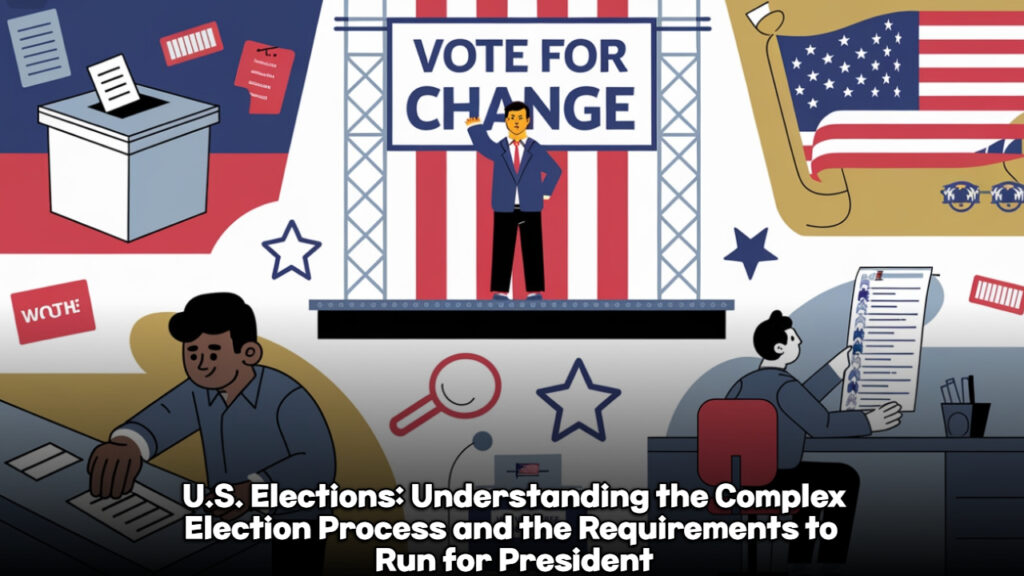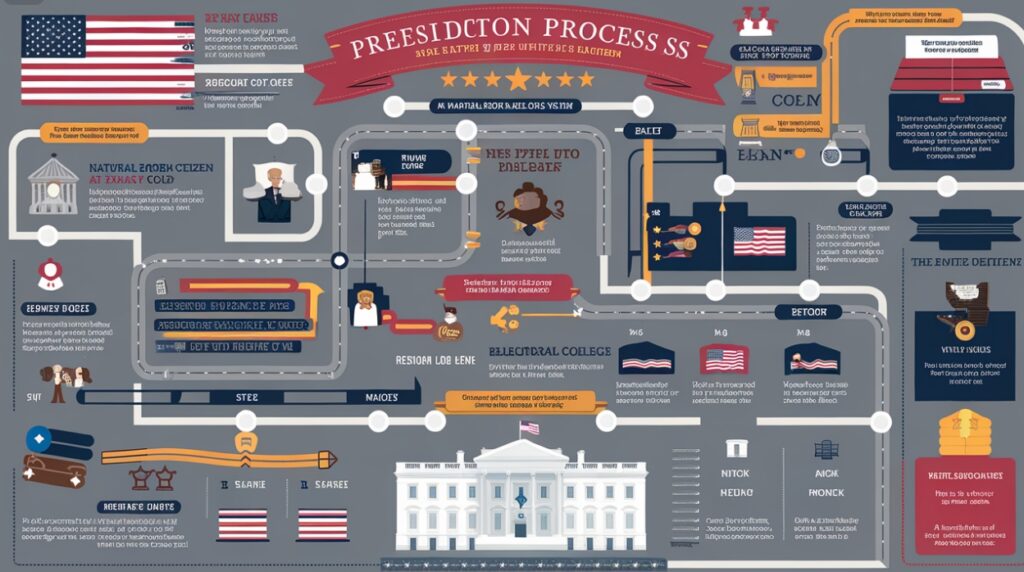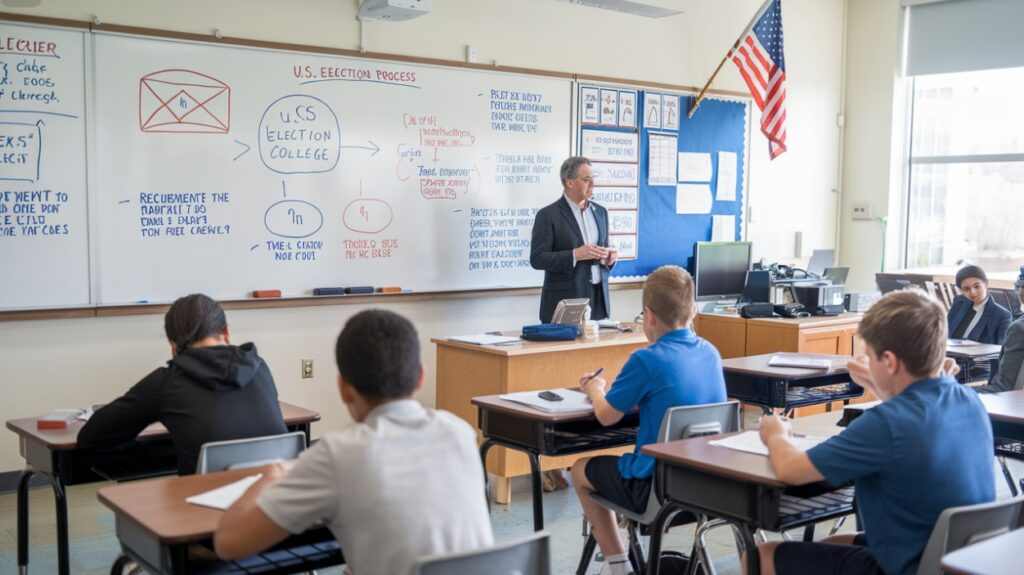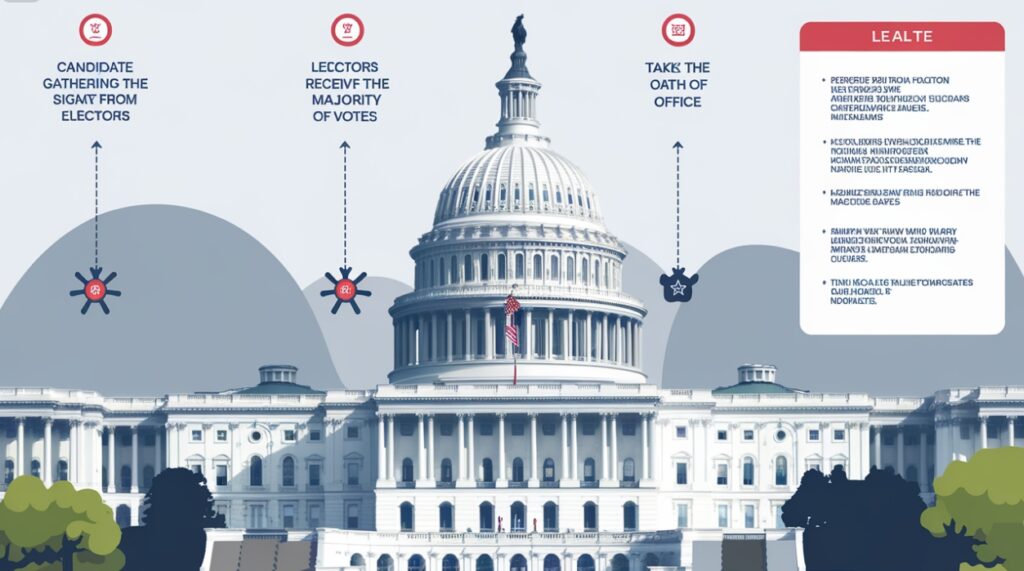The US elections are very well known for their complexity and decentralized nature the American electoral system operates under both federal and individual state it also has a wearing rules and processes across States from the President to local school board members each and every position has its own cycle of election and with cycle of election comes its requirements this reflects the unique structure of American democracy. President post in particularly is a very high anticipated event which captures global attention so here is a depth look at how you was election works what makes it from for president and the evolution of certain terms within the electoral processes such as natural born citizens, enjoy.

Types of US elections and Their Scheduling
The United States holds three main types of US elections. In federal elections, voters choose the President, Vice President, Senators, and House Representatives. State elections allow voters to pick governors, state legislators, and other state officials. Local elections focus on community roles, like mayors, city council members, and school board officials.
All federal elections which includes the presidential elections they are held on the first Tuesday after the first Monday in November because of the tradition the US elections are considered to be cultured programs this tradition was established in 1845 and it was originally in 10 10 to accommodate or largely aggredients society or growing society allowing farmers to vote after the harvest season and since them it has become a staple of American electoral culture.
Presidential Election Process

The journey to the White House involves an indirect US elections process with specific requirements for candidates. To qualify, a presidential candidate must be at least 35 years old, a natural-born U.S. citizen, and have lived in the U.S. for at least 14 years.
Primaries and Caucuses
An election year is held from January to June in these events help determine each parties presidential nomine the primaries are state Run elections were voters choose their preferred candidates whom they want to vote and while causes are meetings which are organised by political party express there on references publicly.
National Conventions
In the summer, each major party holds a convention where delegates officially nominate a candidate for president. The number of delegates each candidate has won through primaries and caucuses determines the outcome.
General Election
On Election Day, citizens cast their votes for their preferred presidential candidate. However, they are technically voting for a slate of electors pledged to that candidate.
Electoral College
Each state is allocated a number of electors equal to its total number of Senators and Representatives in Congress, with a nationwide total of 538 electors. Most states follow a winner-takes-all system, where the candidate with the most votes in that state receives all its electoral votes. A candidate needs at least 270 electoral votes to win the presidency.
Vote Counting and Certification
After Election Day, electors meet in their state capitals to cast their votes for president and vice president. Congress officially certifies these votes in early January.
US elections Inauguration
The president-elect is inaugurated on January 20, officially beginning their term.
Electoral College and Voting Methods

Electoral college it is unique feature of the US electoral system which was established to balance the influence of small and large States. The system of an help a candidate winning the presidency dispight losing the popular vote as erectors ultimately decide the outcome. Tumhen dirty of tax all most States are filled with this Maine and Nebraska choose their electros proportionally which offers is light variation in a standard electoral college practice.
Even the voting methods very across all the states in the US the candidates with the most votes win through a first pass the post system and this is the story of most of the election system the first past the post system doesn’t require an absolute majority but some States required candidate to win in majority and if no interest then the hold US elections between the top candidates to ensure a face off.
What Does It Mean to Be a “Natural-Born Citizen”?
The term “natural-born citizen” has sparked debate for centuries, particularly regarding eligibility to run for president. Here’s how this term and its interpretation have evolved over time:
US elections Original Meaning (1789)
When the Constitution was drafted, “natural-born citizen” was understood through English common law, which generally defined a “natural-born subject” as someone born within the nation’s territory. Early interpretations suggested that only those born on U.S. soil qualified.
The Naturalization Act of 1790
This law broadened the interpretation, stating that children born abroad to U.S. citizen parents would be considered “natural-born citizens.” However, later legislation, such as the Naturalization Act of 1795, referred to such individuals as “citizens” without the “natural-born” designation.
19th and Early 20th Centuries US elections
Legal scholars debated whether individuals born abroad to American parents met the “natural-born” requirement, especially as more Americans began living abroad. Jus sanguinis (citizenship by parentage) became increasingly accepted alongside jus soli (citizenship by birthplace).
Modern Legal Framework
The 1986 immigration and nationality act has clarified citizenship for those bond abroad to American parents and according to the app children which are born abroad to to US citizens are automatically citizens of the United States provided if one parent has home or residence in the US previously. If one parent is your citizen and one is non-citizen then the citizen parent must have lived in the US for a minimum of 5 years including at least 2 years after their 14th birthday.
Still the act does not express these individuals as natural born citizens which sleeves room full of debate. This like of clarification had once Rose a kiss in which a lot of criticism was held against senatory groups was born in Canada to an American mother many contemporary legal scholars agree that natural born, including those who acquire remains with some advocating are necessary for constitutional amendments to set on the issue.
Conclusion: The Intricacies of US elections

The US elections process showcases a complex, decentralized system influenced by historical precedent, legal evolution, and the country’s commitment to balancing state and federal power. Whether at the local or federal level, these elections underscore the diversity and resilience of American democracy, The unique aspects of the presidential election, from the Electoral College to the “natural-born citizen” debate, continue to shape the nation’s political landscape, making each election a pivotal event in U.S. history.
Also Read- Supreme Leader Ayatollah Ali Khamenei X Account Suspended!